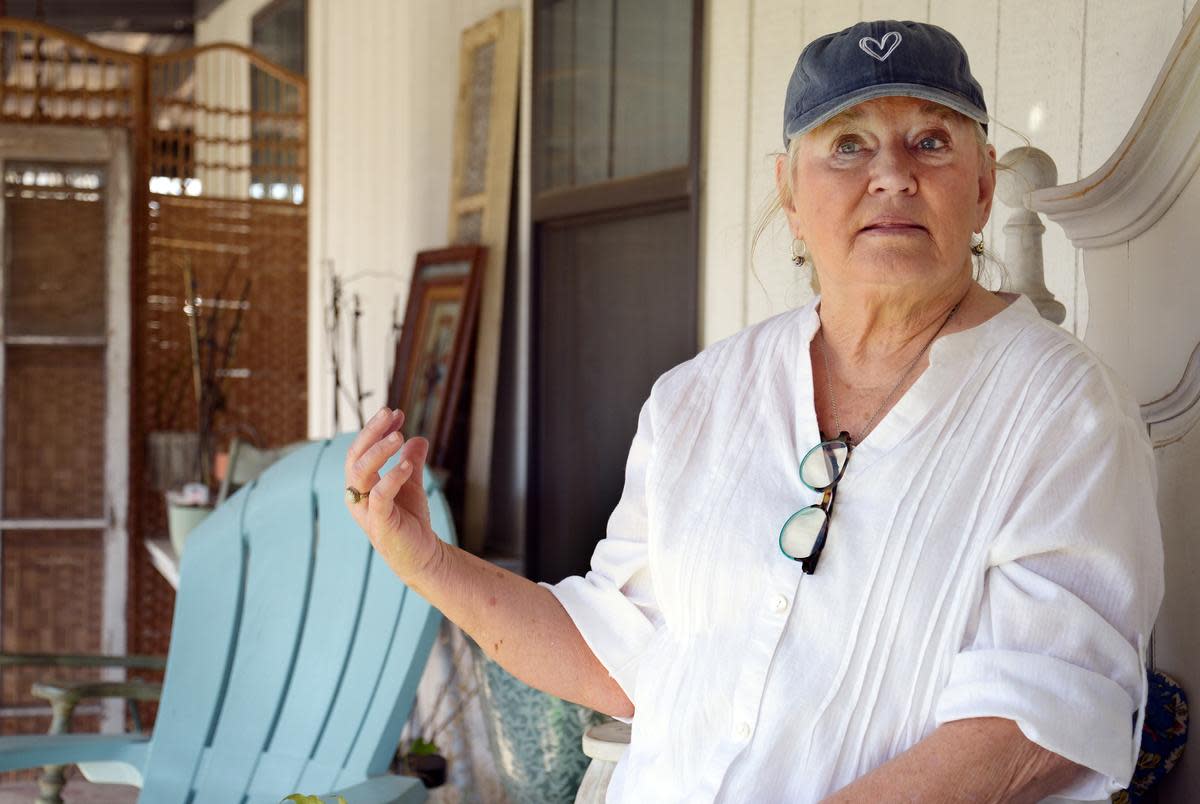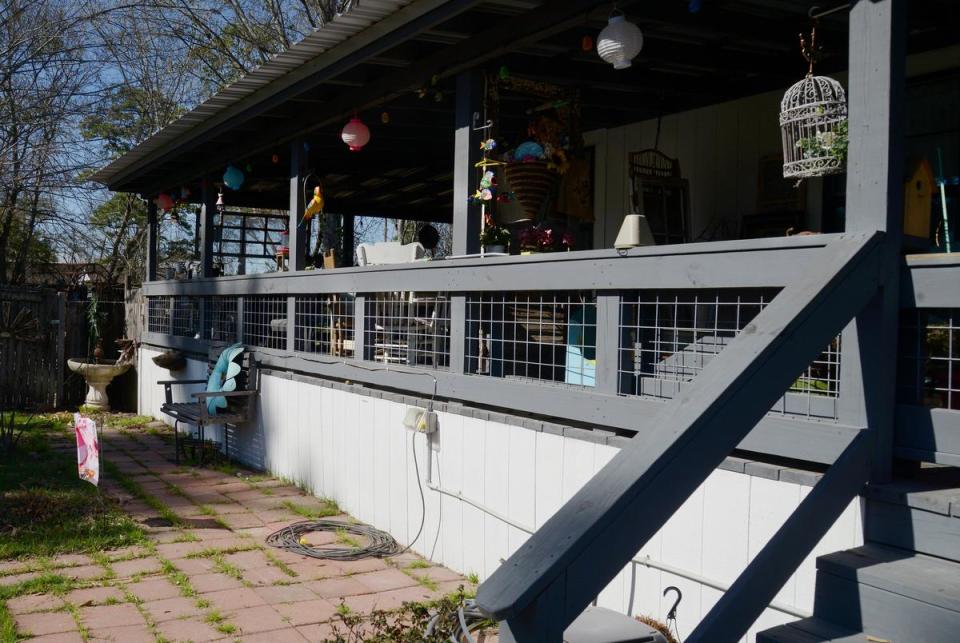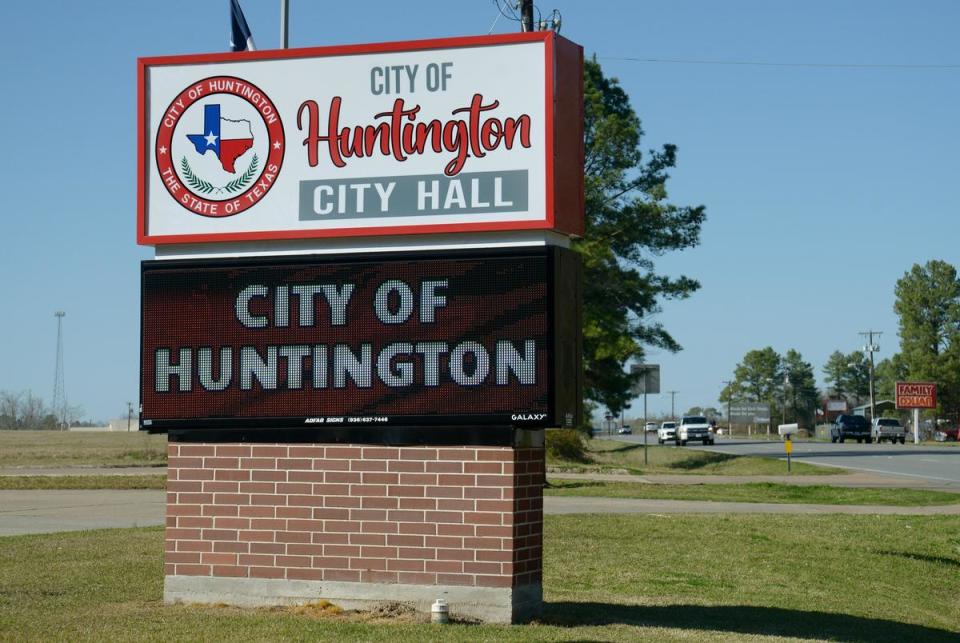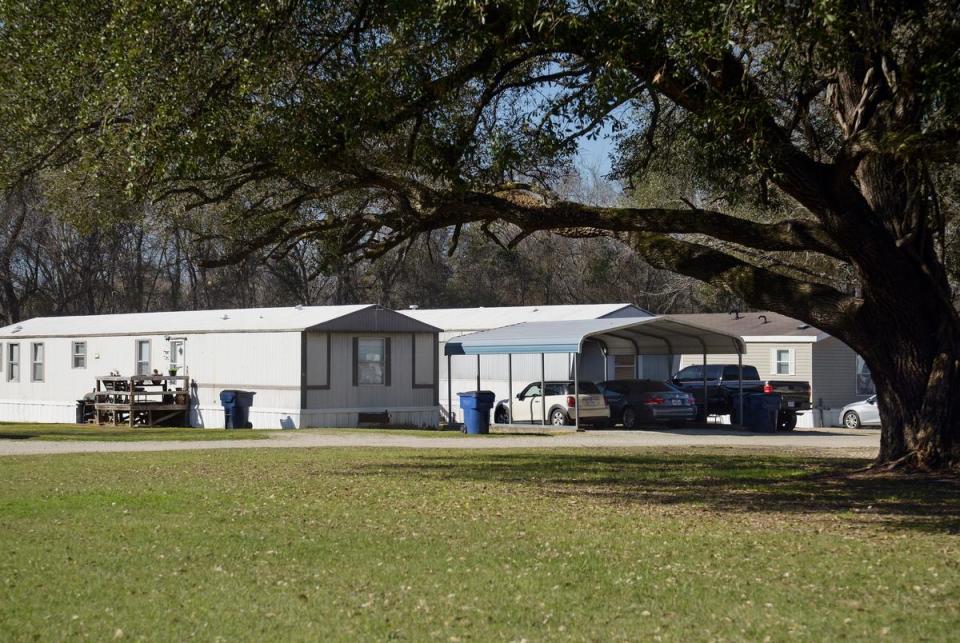An East Texas town has put strict limits on mobile homes — again

LUFKIN — When Rita Kromer’s home of 50 years burned to the ground in 2021, she considered replacing it with a mobile home to keep her costs down.
Kromer was stunned to learn the Huntington City Council had approved an ordinance less than a year prior prohibiting the placement of mobile homes on lots designated for single family homes. They could only be placed in the city’s five existing mobile home parks.
Incensed, Kromer successfully mobilized Huntington residents demanding the East Texas city council rescind its decision. She celebrated by placing her new mobile home on her property.
But two years later the Huntington city council reinstated the ban.
“The more I think about (the ban) the madder I get,” she said.
City leaders in recent interviews have said the decision to reinstate the ban was done with the city’s growth in mind. The expansion of retailers, investment in city infrastructure and interest in the development of affordable housing has set Huntington on a path for expansion, and the council wanted to make sure the city was attractive to new residents.

The zoning debate in Huntington exemplifies the delicate balance cities across the U.S. face in creating new affordable housing options and equity for established home owners.
Huntington sits about 15 minutes south of Lufkin on U.S. 69 south and is within minutes of Sam Rayburn Reservoir. In recent years, the city has experienced growth in the retail sector with a new Brookshire Brothers grocery store ready to open as well as a new O'Reilly's Auto Parts store.
The small city, which is home to just over 2,000 residents, is considered more affordable than most places in the U.S., according to Best Places, a website that tracks costs of living. It costs 22% less to live there compared to the U.S. average, and 17.2% less to live there compared to the Texas average. A typical home costs about $173,500, which is nearly 50% less than the national average and about 40% less than the state average.
City leadership wants to keep the city affordable for current and future residents, but they also want the city to grow. They believe restricting mobile homes will entice new homeowners to establish themselves in the community.
“Part of that growth is improving the city itself, as far as the values of homes and overall revenue coming into our city,” said Twila Bertrand, a Huntington city council member who is also a local real estate agent.
Kromer said they would do better to fix the streets, which is an issue most residents complain about, instead of banning mobile homes.
“To be perfectly honest, the city council forgets where they came from,” Kromer said. “You would think Huntington was a multimillion dollar town.”

Affordable housing in rural Texas
Mobile homes are an affordable housing option used by more than 22 million U.S. residents. And while mobile homes make up less than 9% of all home sales in Texas, those sales are largely represented in rural communities like Huntington, said DJ Pendleton, the executive director of Texas’ Manufactured Housing Association.
“Banning (manufactured housing) outright takes a viable attainable and affordable, unsubsidized, market driven housing option off the table,” he said. “(Manufactured housing) is on average about half the cost per square foot to comparable site built. And blanket bans have a harsh impact and don’t allow for more nuanced policy to allow some types of homes.”
Affordable housing is a challenge cities across Texas are grappling with, and while Huntington has taken mobile homes off the menu, leadership has encouraged developers to construct more affordable brick and mortar homes instead.
Site-built homes are a better investment for homeowners in the long-run, as mobile homes depreciate over the years in a similar manner to vehicles, Bertrand said. This mindset is being debated in the real-estate industry, however.
A Federal Housing Finance Agency report in 2018 found that mobile homes or manufactured homes appreciate at a similar rate to site-built homes. But this data is far from conclusive as manufactured homes aren’t as highly represented in U.S. major statistical areas (which the report relies on) as they are in rural areas, the report states. The agency hasn’t produced a similar report on mobile home prices since 2018.
Mobile homes are typically more affordable as they don’t rely on a slab foundation, which makes them an option for first time home buyers who may otherwise struggle to pay for a traditional, site-built home. In Angelina County, where 20% of residents lived below the poverty line and 28% were considered working poor by the United Way ALICE Initiative, affordability is a major consideration.
“In reality, it’s so much more affordable for (prospective mobile home buyers) to buy land outside the city limits,” Bertrand said. “So, in the long run, as far as the whole package of a property, it’s going to save them more money to buy land, if they want a mobile home, outside of the city limits for those lower income families.”
Kromer agreed that unkempt mobile homes could impact home values of neighbors, but so can poorly kept traditional homes. The city needs to enforce its codes, she said.
“They need to have stipulations, let people put mobile homes on land with restrictions as to how they take care of them,” she said.
Huntington’s code enforcement officer has had to address those situations regularly, City Manager Bill Stewart said. But the town struggles to hold homeowners accountable for the state of their properties. The ban is a different way to tackle the issue.

What this will mean for Huntington
In November 2023, the ban was brought before the council again, as council members worried about the effects of mobile homes, which have a reputation for degrading quickly when not maintained, on the surrounding property values, Stewart said.
“Three or four council members came back [last year] and said, for whatever reason, they felt like they had made a move that was not in the best interest of the city,” he said. “As a group they asked that we put it back on the agenda and reconsider it.”
And the council reinstated the ban. No residents attending that meeting voiced any opposition.
This new ban prohibits new mobile homes from being placed in city limits, outside of one of Huntington’s five mobile home parks. New parks may possibly be established following a review and approval process. According to Stewart, this is ample space in one of the five parks for new residents.
If someone wants to replace an existing mobile home, they have to complete an application and it can’t be more than three years older than the date of the application. Mobile homes must also be lived in by the owner, and not rented out, with the exception of people who were already renting mobile homes at the time the ordinance was passed.
Similar bans in small towns spanning from Texas to the East Coast have passed in recent years. Researchers with the U.S. Department of Housing and Urban Development identified mobile homes as a viable option for individuals working blue collar jobs where they are typically paid less and have less education.
As a real estate agent, Bertrand has seen buyers turn away from homes on streets with mobile homes. She has also seen appraisers dock the value of homes that sit nearby mobile homes, especially when considering the average market price of the surrounding neighborhood.
“A mobile home that is rundown, that has not been well kept at 100%, brings down property values of everything around that property,” Bertrand said.
The impact of these properties on actual property values is widely debated and rarely researched, according to the U.S. Department of Housing and Urban Development.
Research does show that mobile home bans have relegated their owners to less desirable areas where they are more likely to feel the consequences of natural disasters, isolated from community services and prevented from owning land, HUD researchers wrote.
“There's probably people right now that are thinking, ‘Oh, we’ll get a nice mobile home’,” Kromer said. “They're getting started in their marriage, or they're older and they don't want to invest a lot of money right now. The economy is bad and that was a way to help them.”
We can’t wait to welcome you to downtown Austin Sept. 5-7 for the 2024 Texas Tribune Festival! Join us at Texas’ breakout politics and policy event as we dig into the 2024 elections, state and national politics, the state of democracy, and so much more. When tickets go on sale this spring, Tribune members will save big. Donate to join or renew today.

